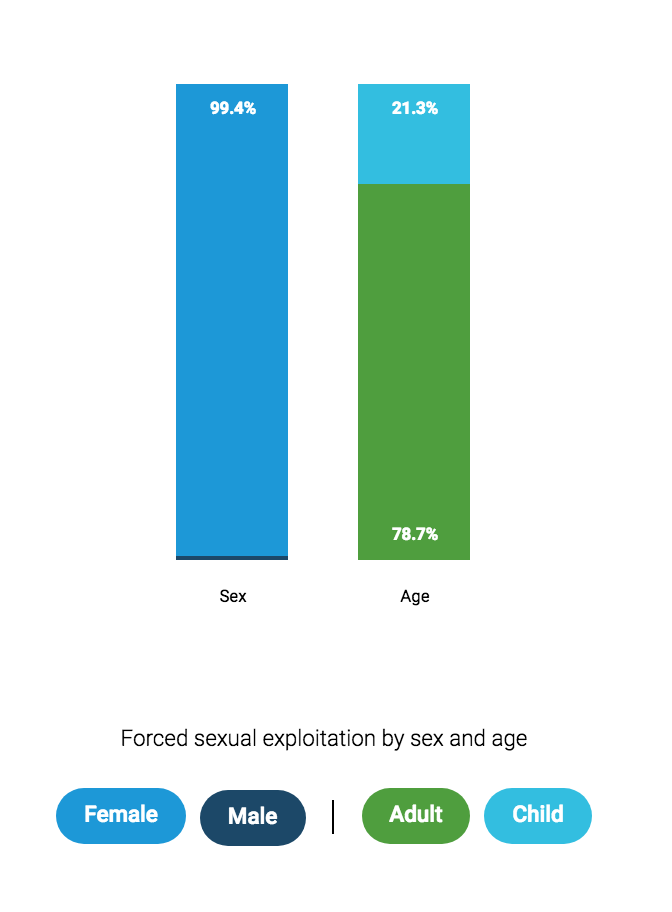
On International Women's Day, and in support of our See Me, Free Me initiative, UNHS wishes to highlight the plight of women and girls worldwide who suffer as victims of modern slavery. Women and girls comprise a majority of known victims of human trafficking worldwide: representing 51 per cent and 20 per cent, respectively, of all reported victims. Women and girls are trafficked and exploited for a variety of purposes, including commercial sex exploitation, domestic servitude, sham and forced marriages, forced labour in industries such as agriculture, fishing, garment factories, catering, cleaning and for organ removal.

Of the many forms of exploitation endured by women and girls, sex trafficking is one of the most degrading and dehumanising, and one that has flourished in our societies for centuries. Sex trafficking disproportionately affects women and girls, with as many as 96 per cent of globally reported victims being female. The continuous presence of sexual exploitation in our communities is driven by multiple factors, including profitability of commercial sex and impunity of traffickers. However, it is the deeply-rooted gender discrimination that has allowed sexual exploitation to flourish in the first place.
Throughout history and until present day, women have been subjected to extreme levels of socioeconomic discrimination brought about by unequal access to education, healthcare and economic growth. Those imbalances, together with systemic violence and objectification of women, have cemented the ‘second-class’ status of female members of our societies and rendered them highly vulnerable to sexual exploitation. Women and girls, therefore, are at the heart of promoting international and sustainable development, and remain the most critical demographic in advocating for and achieving the SDGs.
Today, you can help us end exploitation of women and girls by supporting charities assisting victims of trafficking, and fighting for better future of girls and young women worldwide. A short list of the many organisations working on human trafficking in Scotland and the UK:
United Nations House Scotland: Promoting sustainable development education and achievement n Scotland, and host of the "See me, Free me" initiative.
Beyond the Streets UK: Working to end sexual exploitation across the UK.
Unseen UK: Supporting victims of modern slavery and human trafficking to recover from trauma and rebuild their lives.
Zero Tolerance: Working to end violence against women in Scotland by promoting gender equality and by challenging attitudes which normalise violence and abuse.
The Bijlmer Project: A research and intervention based project focusing on the psychosocial needs of victims of human trafficking,who were bought and sold for sexual exploitation.
